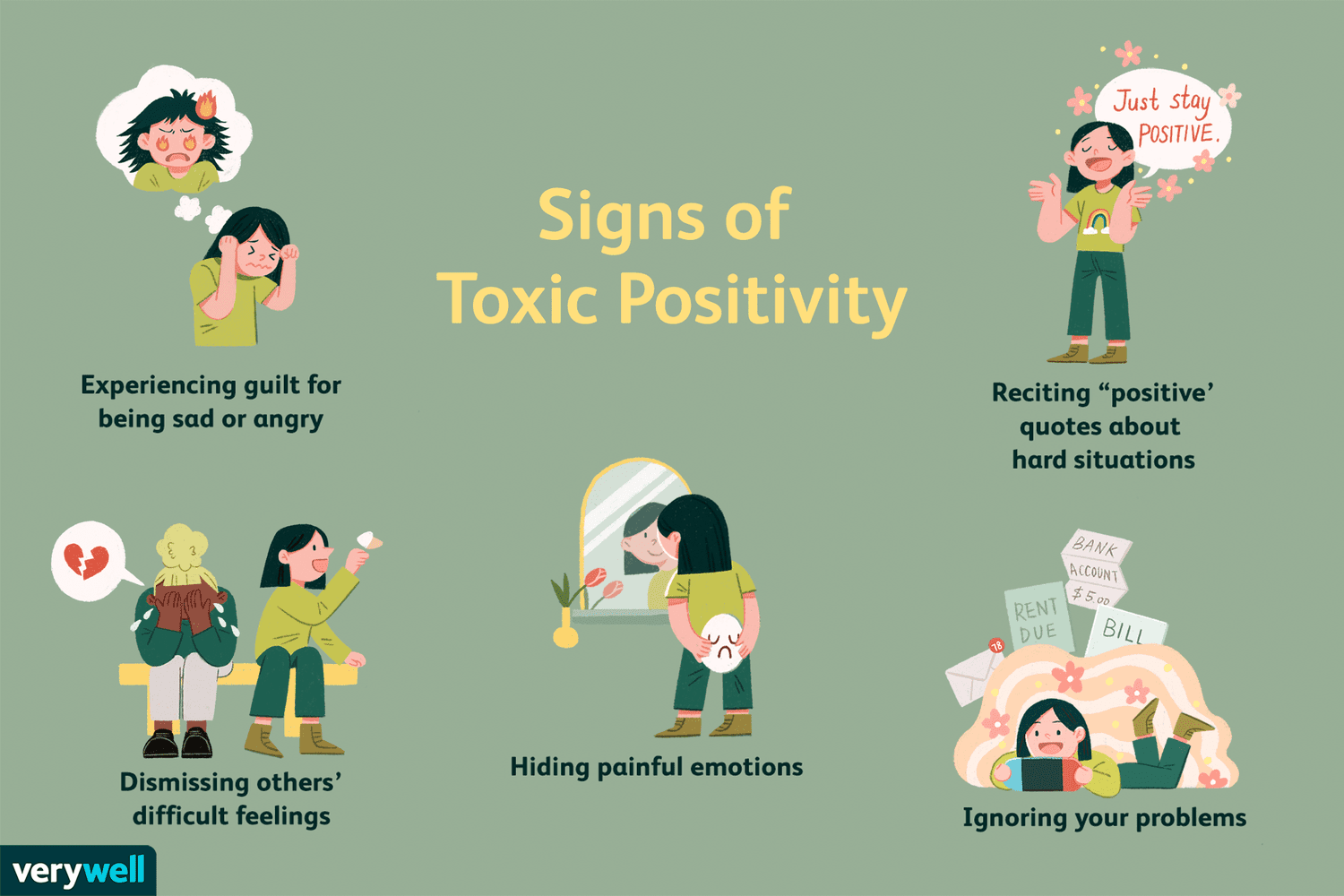By Maria Koulourioti,
“Everything will be okay. You will get over it. Stay positive!”. Everywhere we turn our heads, we bump into it. In just a few years, a simple mindset has become a massive growing wag of life, an industry where people are getting paid to promote positivity as if it were a good up for sale in the market, enforcing somehow their pressuring standards into an everyday philosophy. We feel it in our gut, something is not quite right, yet we cannot put it into words; it is the phenomenon called “toxic positivity”.
Specifically, toxic positivity or positive toxicity could be elaborated as dysfunctional emotional management lacking the full acknowledgment of negative emotions, particularly anger, sadness, and grief. While there is certainly something to be said for having a sunny disposition on life, it is also possible to overdose on the sickeningly sweet nectar of platitudes such as “everything is awesome!”. The ineffective overgeneralization of happiness results in a state of emptiness, a masked burnout that is not always perceived neither by the individual or their inner cycle. In the end, by pretending that our negative feelings do not exist and brushing them off with a forced positive attitude, we are denying a prominent part of human nature underlying a universal experience, in particular, the guilt of letting ourselves feel unpleasant emotions while minimizing other people’s experiences to “it is what it is”, or even trying to give perspective rather than validating one’s sentimental values, are key-parts in this new growing philosophy, the not so accurate effort to reinterpret stoicism.

In Stoicism, well-being can be achieved by examining situations that cause the individual distress and also by an acceptance of what is beyond our control and not-so-accurate on what is ultimately good or indifferent. Henry Manampiring, one of many individuals that were put in institutions for their mental health problems, discovered Stoicism in the middle of a clinical depression episode. Only by studying renowned stoic philosophists while still on medication, Henry got enlightened on the futility of worrying about things not under their control. To his doctor’s astonishment, he stopped taking the prescribed medication and fully overcome depression.
Furthermore, in a recent study by researchers at the Affective and Cognitive Neuroscience lab at Birkbeck, cognitive training based on the principles of Stoic philosophy reduced emotional vulnerability in those at risk of anxiety and depression.
Unlike modern pieces of training standards of positivity, stoicism as a philosophy has risen in popularity online and in self-help circles, tout, until recently there has been no research into the claims made. On the other hand, numerous individuals alongside social media influences have their own “no pressure, pressure” philosophy on well-being and positivity concealing a mindset that has been around even before Aurelius. While stoicism Cromwell-mindful attention to, and responsibility for, one’s own emotional state and behavior enforcing positivity will eventually result in a diffusion of feelings, ideals, and goals in personal development. In Stoicism, well-being can be achieved by evaluating situations that cause the individual distress and also by an acceptance of what is beyond our control and deeper contemplation on what is ultimately good or indifferent. As Mark Manson stated in The Subtle Art of Not Giving a F*ck: “The avoidance of suffering is a form of suffering. The avoidance of struggle is a struggle. The denial of failure is a failure. Hiding what is shameful is itself a form of shame”.

In the end, how is one supposed to protect their sanity in a society full of voices trying to remind us that our problems are not problems but concealed glimpses of happiness? Viewing the world through rose-filtered glass is not always the answer, as playing hide and seek with our issues definitely does not provide a solution. Without a doubt, maintaining a positive spirit over life’s difficulties will make the painting less messy but it won’t reveal the final picture. In order to achieve balance, clarity, and will to put effort into our personal development, it is crucial to comprehend our true nature. Instead of ignoring our imperfections, difficulties, and obstacles in life, embrace them; embody humanity, and reject superficial positivity. Be self-compassionate, not self-destructive…
References
- Birkbeck study on stoicism and its impact on mental health. bbc.ac.uk. Available here
- Toxic Positivity. thepsychologygroup.com. Available here
- Toxic Positivity. rightasrain.uwmedicine.org. Available here




